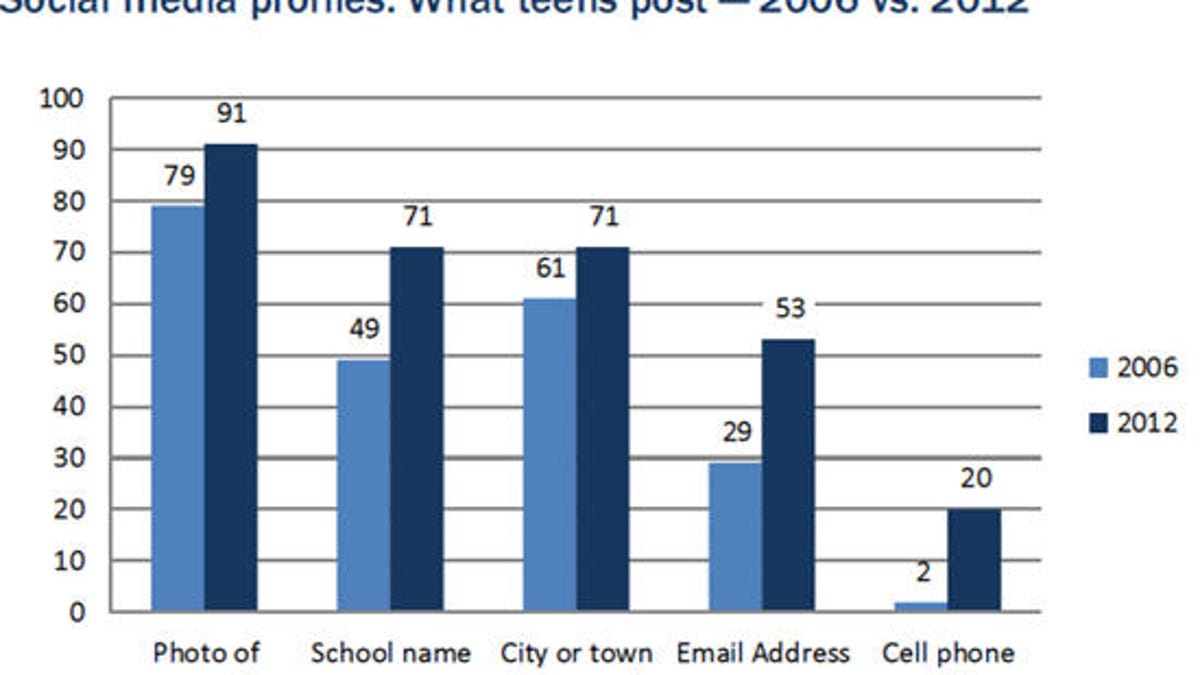Survey: Most teens take steps to protect their privacy (podcast)
Even though teenagers are sharing more information than before, a Pew study finds that "few teens embrace a fully public approach to social media." The study also looks at which social networks teens use the most.

While "teens are sharing more information about themselves on social media sites than they did in the past," according to the study, "few teens embrace a fully public approach to social media," but "take an array of steps to restrict and prune their profiles." Here's the full report.
The study also found that:
- Teen Twitter use has grown significantly: Now 24 percent of online teens use it, up from 16 percent in 2011.
- The typical (median) teen Facebook user has 300 friends, while the typical teen Twitter user has 79 followers.
- Focus group discussions with teens show that they have waning enthusiasm for Facebook, disliking the increasing adult presence, people sharing excessively, and stressful "drama," but they keep using it because participation is an important part of overall teenage socializing.
- 60 percent of teen Facebook users keep their profiles private, and most report high levels of confidence in their ability to manage their settings.
-
Teens take other steps to shape their reputation, manage their networks, and mask information they don't want others to know; 74 percent of teen social media users have deleted people from their network or friends list.
- Teen social media users do not express a high level of concern about third-party access to their data; just 9 percent say they are "very" concerned.
- On Facebook, increasing network size goes hand in hand with network variety, information sharing, and personal information management.
While most teenage Facebook users pay attention to privacy settings, that's not the norm on Twitter, where only 24 percent of teens say they post in private.
Facebook remains the most popular site, with 94 percent of teens saying they have a profile compared with 26 percent for Twitter and 11 percent for Instagram. When asked which site they used most often, 81 percent chose Facebook compared with 7 percent for Twitter and 3 percent for Instagram (which is owned by Facebook) and only 1 percent each for YouTube, Tumblr, and Google+.
For more, please click below to listen to my 10-minute interview with Lehnart.
Subscribe now: iTunes (audio) | RSS (audio)
Disclosure: Larry Magid is co-director of ConnectSafely.org, a non-profit Internet safety organization that receives financial support from Facebook and other social media companies.

